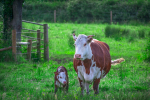
I would like to reassure you that the UK's rigorous regulatory system ensures that no animal testing or research takes place if a non-animal alternative exists that would achieve the scientific outcomes sought. The National Centre for the 3Rs (NC3Rs) is the UK’s leading scientific based organisation dedicated to replacing, refining, and reducing the use of animals in scientific research and testing. The NC3Rs supports the research community to use the latest science and technology to replace animal studies, providing new approaches for biomedical research, and avoiding the time and cost associated with animal models.
Since the NC3Rs was launched in 2004, the Government has invested £77 million in research towards developing new approaches to replace, reduce, and refine the use of animals in scientific procedures, and an additional £32 million through its CRACK IT programme for Small and Medium-sized Enterprises and universities to work with the pharmaceutical and chemical industries on collaborative 3Rs projects that aim to generate commercial opportunities in this area.
Establishments, such as MBR Acres, that either breed dogs for use in science elsewhere or conduct regulated procedures on dogs are required to provide care and accommodation to those dogs in line with the published code of practice for that purpose. Adherence to that code of practice, and to all other standard conditions applied to any establishment licence, is assessed by the regulator as part of its compliance assurance programme.
Without animal testing it is highly likely that a large number of potentially dangerous new medicines would be tested in healthy volunteers and patients in clinical trials. This would be completely unacceptable, however, I welcome the Government's commitment to the development of non-animal technologies. Such technologies have the potential to reduce the reliance on the use of animals, improve the efficiency of drug research and development, and deliver safer, cheaper, and more effective medicines to patients. My ministerial colleagues have also stressed that they continue to actively support and fund the development and dissemination of techniques that replace, reduce, and refine the use of animals in research.
Further, having looked into the Animals in Science Regulation Unit's (ASRU's) report, I have been informed that all cases of non-compliance during 2019 to 2021 have been thoroughly investigated and the outcomes have been published in ASRU’s annual report.

